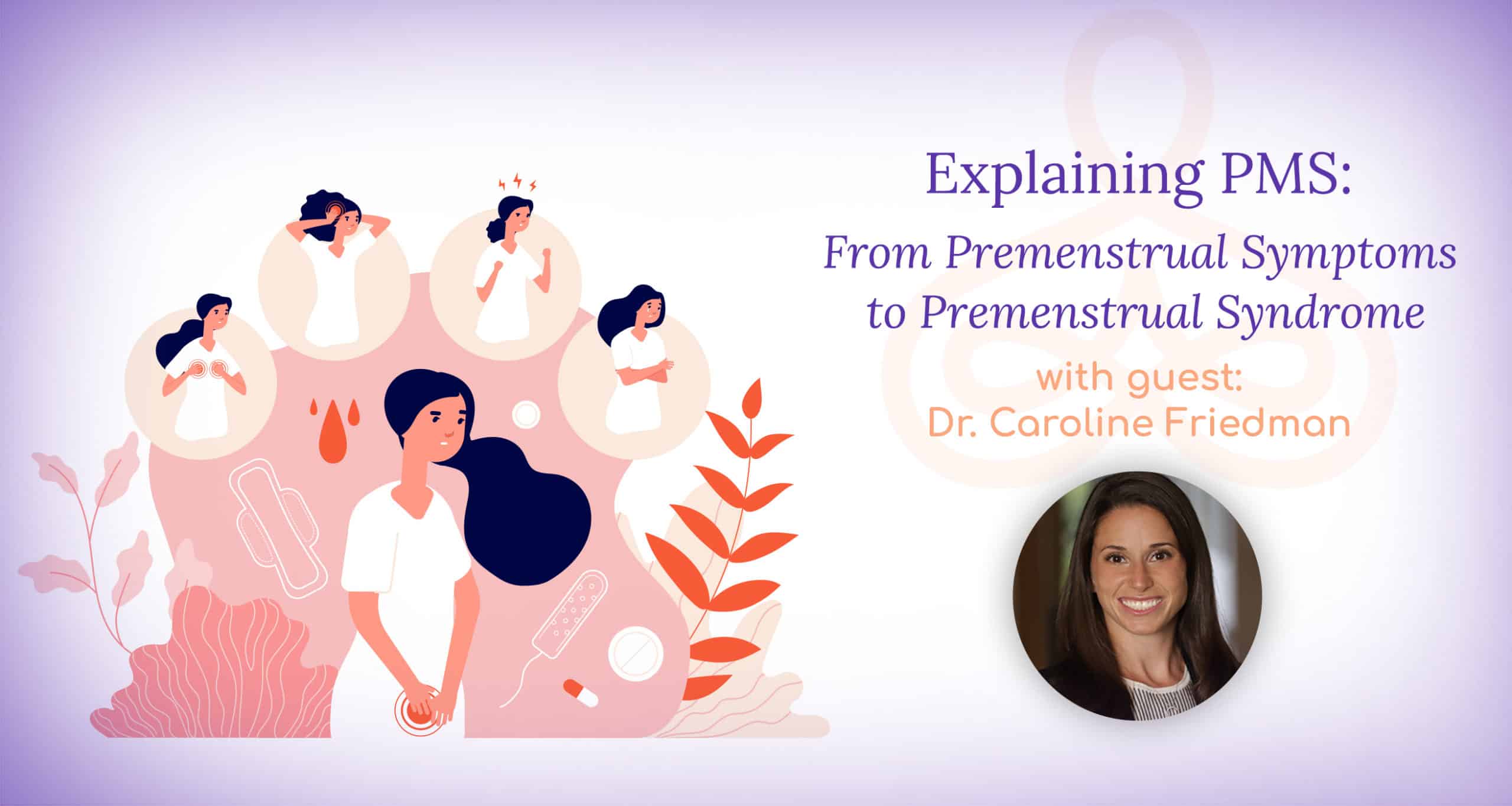On a recent episode of our podcast “Healthful Woman,” Dr. Caroline Friedman and Dr. Fox discussed PMS and its symptoms, diagnosis, and the difference between normal premenstrual symptoms, Premenstrual Syndrome, and Premenstrual Dysphoric Disorder. You can listen to that episode on the Healthful Woman website or your favorite podcast platform or read more about the basics of PMS below.
Premenstrual Symptoms vs. Premenstrual Syndrome
Dr. Friedman explains that normal premenstrual symptoms include “breast soreness, breast tenderness, mild bloating, and fatigue,” and that at least 50% of women have one or more of these symptoms for “some or all of their cycles.”
Premenstrual Syndrome, however, can be classified as the same symptoms reaching a severity that impacts your daily life, such as “your sleep, school/work performance, interpersonal relationships, or ability to complete normal day-to-day chores,” explains Dr. Friedman. At this point, you should talk to your doctor to see if your symptoms meet criteria for Premenstrual Syndrome or Premenstrual Dysphoric Disorder (PMDD).
What is Premenstrual Dysphoric Disorder?
About 2% of women suffer from severe premenstrual symptoms, meeting criteria for the diagnosis of Premenstrual Dysphoric Disorder. Dr. Friedman explains that those with PMDD may experience normal premenstrual symptoms in addition to “depression, anxiety, irritability, insomnia,” or other mental and emotional symptoms. In addition, those with PMDD may suffer from “physical issues such as hot flashes and severe headaches.”
What Causes PMS?
Doctors believe that PMS is caused by cyclical changes in hormones. In particular, the drop in estrogen and progesterone before the period can cause many of the symptoms women commonly experience. In addition, a drop in the neurotransmitter serotonin may contribute to symptoms such as depression, fatigue, food cravings, or insomnia. Those with underlying depression may be particularly susceptible to these symptoms.
When to Seek Treatment for PMS
Patients with severe symptoms of PMS or PMDD may benefit from evaluation and treatment. Dr. Friedman advises patients to “seek help emergently if whatever you’re feeling is really impacting your life, or you’re having thoughts of hurting yourself or others.”
Schedule an Appointment
To schedule an appointment at Carnegie Women’s Health, call our New York, NY office at (315) 628-7063 or request an appointment online.

